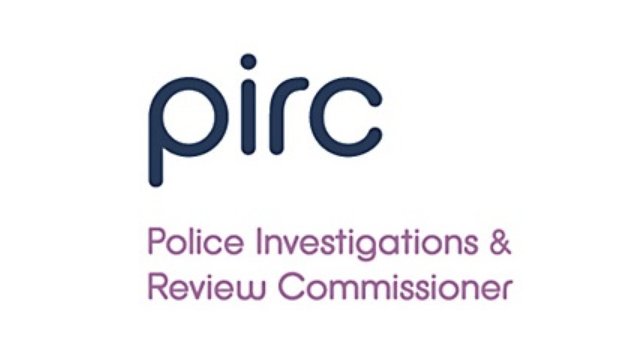Under-Fire Police Control Room Criticised Over Death
20 July 2017, 15:08 | Updated: 20 July 2017, 15:09

Fresh failings have been raised at a criticised police control room over the handling of reports of concern for a vulnerable man who was later found dead.
The Police Investigations & Review Commissioner (Pirc) has been investigating the circumstances of the death of Andrew Bow, 37, at his flat in Edinburgh in March 2016.
Mr Bow, who had Asperger's Syndrome, was last seen by police officers on March 12 last year when they found him in a confused and paranoid state. He was taken to hospital for treatment before officers later took him back to his flat.
A few days later, police received reports of concern for Mr Bow, also pointing out damage to his flat. On March 16 there was a report from a member of the public that he may have taken his own life, but officers did not attend his home until March 23, when Mr Bow was found dead.
Police Scotland apologised to Mr Bow's family for "shortcomings'' over the events surrounding his death.
The Pirc investigation focused on the handling of telephone calls received in relation to Mr Bow's welfare, with a series of failings highlighted among Area Control Room (ACR) staff at Bilston Glen.
That centre was criticised following the deaths of John Yuill and Lamara Bell in July 2015. The couple lay undiscovered for days after a crash on the M9 near Stirling despite a sighting of their wrecked car being reported to the control room.
A report last year said the police call-handling performance has continued to improve since the two deaths.
Commissioner Kate Frame said "a number of failings'' were found by Pirc in response to repeated reports of concern for Mr Bow.
Pirc said no police resources were sent to the incident despite three separate calls reporting broken windows at the flat and concern for Mr Bow.
The flat was within a few minutes' walk of a central Edinburgh police office and community policing officers were available to respond, Pirc found.
Officers finally attended the flat on March 23 when a police sergeant in the Edinburgh area read details of the incident on the police system.
Entry was forced to the flat and and Mr Bow was found dead inside.
A post-mortem examination was unable to provide an estimated time, date or cause of death.
Commissioner Kate Frame said the handling and management of calls dealt with by staff at Bilston Glen needs to be improved and that all available operational resources are used for priority calls.
The Commissioner said: "It is particularly concerning that despite several members of the public contacting the police to express their concerns, Police Scotland appear to have taken no action in relation to the first approach and thereafter in response to the subsequent calls, failed to dispatch officers who were available, timeously, to investigate.
"Whilst there may have been confusion in identifying the correct address from the original report, the person who contacted the police on the second occasion offered to remain at his premises and point out the flat to officers. Had that opportunity been taken, the police would have been able to identify the deceased's flat and investigate matters sooner.''
Police Scotland Assistant Chief Constable Nelson Telfer said the force has made "significant changes and improvements'' since the incident.
"Even after the passage of time, our thoughts remain with Andrew's family and friends,'' Mr Telfer said.
"We do, however, note the recommendations within the Pirc report and acknowledge the fact that there were some shortcomings in relation to the events that led to Andrew's death in March 2016. We would like to offer our sincere apologies to Andrew's family and friends for that.
"We must learn from these findings to further improve our call handling and management and deployment of local policing resources.''
George Graham, who chairs the Scottish Police Authority (SPA) assurance group on call handling, said the Pirc report highlighted "a poor and disjointed police response''.
He added: "In the 16 months since this took place, the SPA has carried out an enhanced level of oversight and scrutiny as Police Scotland has sought to modernise its call handling and response.
"That work has been underpinned by the advice of HMICS who have carried out over 100 site visits to call centres in the course of their work.
"There is more still to do and, in a human operation such as this, misjudgements can still be made. While an individual incident should not define a service, it also cannot be ignored.
"I have spoken with DCC Johnny Gwynne about this report, and SPA will be seeking assurance from Police Scotland that the service as it stands now in summer 2017 is in a position to address the issues identified by Pirc in a much more coherent and effective way than it did in spring 2016.''







